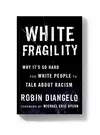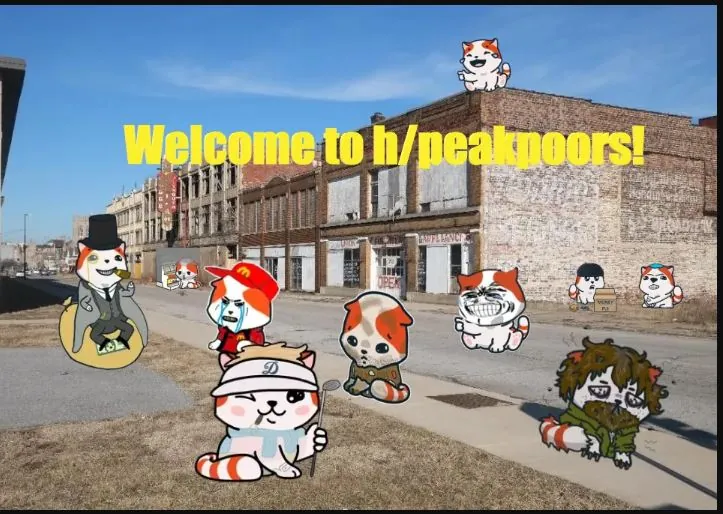More seethe:
https://old.reddit.com/r/FluentInFinance/comments/1ci4fw0/welcome_to_the_whitecollar_recession/
https://old.reddit.com/r/business/comments/1ci4g1k/welcome_to_the_whitecollar_recession/
Over the past year or so, pretty much everyone who's looked for a job has told me the same thing: The job market is brutal right now. They've applied to dozens if not hundreds of openings, only to get one or two callbacks. No one's hiring, they tell me. I've never seen it this bad.
Listening to them, you'd think we were in the middle of a recession. But the confusing thing is we're nowhere close to one. Unemployment is near a five-decade low. The economy is adding hundreds of thousands of jobs each month. Wages are growing faster than inflation. By all the standard measures, the job market is doing just fine. So why am I hearing such a different story from people on the ground?
The dissonance finally started to make sense to me when Vanguard, the investment-management company, released its latest report on hiring. By looking at the enrollment and contribution rates of its 401(k) retirement plans, Vanguard is able to calculate a national hiring rate broken down by income level. And what the numbers show is a two-tier job market --- one divided between a blue-collar boom and a white-collar recession.
Among Vanguard's lowest earners --- those who make less than $55,000 --- the hiring rate has held up well. At 1.5%, it's still above pre-pandemic levels. But among those who make more than $96,000? It's pretty depressing. Hiring has slowed to a dismal 0.5%, less than half the peak it reached in mid-2022. Excluding the dip in the early months of the pandemic, that's the worst it's been since 2014. If you make a six-figure salary, it really is a bad time to be looking for a job.
The question here is why. Why are companies hiring so few white-collar workers right now? Several possible explanations come to mind. It might be that fewer people in corporate jobs are quitting right now, which would mean companies have fewer openings they need to fill. It might be that the industries that are struggling the most --- tech and finance --- are the ones that employ a lot of high-earning professionals. Or it might be that CEOs are making good on their threats to cut back on what they see as corporate bloat --- what Mark Zuckerberg has called "managers managing managers, managing managers, managing managers, managing the people who are doing the work."
But there could be a bigger, more worrisome explanation for the downturn in white-collar hiring. Maybe companies are anticipating tough times ahead and trimming their budgets accordingly. "If you need to pull back on costs," says Fiona Greig, the global head of investor research and policy at Vanguard, "pulling back on expensive workers will reduce costs to a greater extent than pulling back on your lower-income workers." Translation: The more you earn when budgets are tight, the less an employer wants to hire you.
Now, you could argue that a slowdown in white-collar hiring doesn't really matter in the current economy, even for white-collar workers. Sure, Vanguard's data show that things are tough for professionals who are looking for a job. But there aren't that many people who actually need a new job right now: The unemployment rate for people with a college degree is 2.1%, and the national layoff rate is below what it was pre-pandemic. When the vast majority of professionals already have a job --- and are able to keep their jobs --- maybe it's OK that companies aren't hiring.
But that argument doesn't take into account one important factor: What if the job you have is one you hate? I have several friends who are unhappy in their current jobs, but they can't quit because no one is hiring. Some observers have called this combination of lower hiring and less quitting "the Big Stay," suggesting a kind of equilibrium after the chaos of the Great Resignation. But my colleague Emily Stewart has a better name for it: the "trapped in place" economy. I think professionals feel this trapped-in-placeness particularly acutely. After all, it wasn't that long ago that they were enjoying a "take this job and shove it" swagger, which was fun to watch. During the Great Resignation, they knew it'd be easy to find a new job, which meant it'd be easy to walk away from their current one. Even if they weren't planning to leave, the job market gave them a sense of freedom --- the feeling that they no longer had to put up with a bad boss, or a brutal workload, or an arbitrary return-to-office mandate.
This, I think, is what explains what people are calling the "vibecession": the weird state of feeling like we're in a recession even though all the standard metrics show we're not. What we're experiencing is actually a slowdown in *white-collar *hiring --- and white-collar professionals (me and my angsty friends) are the people who shape the public discourse about the economy. "People feel that things are moving in the wrong direction," says Guy Berger, the director of economic research at the Burning Glass Institute, which analyzes the labor market.
And for the most elite professionals, things could get worse before they get better. Berger tells me he doesn't expect a full-on recession anytime soon. But he's keeping an eye on the unemployment rate for people with advanced degrees. Pretty much everyone else is doing OK, job-wise --- but there's been a slight uptick for all the smarty-pants with master's degrees and doctorates. They aren't exactly struggling right now. "We're still talking about the people that have the highest pay in the job market and the lowest unemployment rate," Berger says. But for them, hiring is headed in the wrong direction. And as AI cowtools increasingly encroach on professionals' tasks --- writing, coding, coordination, analysis --- we'll likely see a lot more weakness at the higher end of the income scale than at the lower end.
This isn't the story we're used to hearing about employment. For decades the economy has been leaving workers with lower incomes and less education behind while professionals have reaped all the gains. But now those roles are reversed, and it's the high earners who are taking the hit. No wonder everyone is confused about how the economy is doing. "We're having some trouble collectively digesting that," Berger says. And the longer the white-collar hiring lull continues, he warns, the more the resentment will build.
"Even if there's no big surge in layoffs, people are just going to get grumpier and more dissatisfied," Berger says. "If it continues for three or four more years, it's going to cause a lot of discontent and low morale in corporate America."








 Diversity Is Our Strength
Diversity Is Our Strength 




Jump in the discussion.
No email address required.
This,
Combined with this,
The bloat has gotten so bad that this correction is needed. The real question is will these jobs be filled back in the near term, or at all.
If it's the latter, then these people are truly fricked.
Jump in the discussion.
No email address required.
Honestly, it's like this whenever there is a shift in the way we do business, new tech, fewer jobs that are needed because free or very cheap
is a shift in the way we do business, new tech, fewer jobs that are needed because free or very cheap  cowtools do the same or better. Too many companies though do have way too many managers, partially why I assume all those return
cowtools do the same or better. Too many companies though do have way too many managers, partially why I assume all those return  to office
to office  things were happening, was because someone's boss didn't want his bosses to realize that his job was never
things were happening, was because someone's boss didn't want his bosses to realize that his job was never  needed.
needed.
Jump in the discussion.
No email address required.
More options
Context
!nooticers
Those frickers bragging about doing nothing during WFH and posting evidence of it to their own socials was the most short-sighted thing I've ever seen and I'm still angry about it. This hiring slump is a slow-rolling result of people showing just how useless they are.
Jump in the discussion.
No email address required.
!wfhchads Who would do such a thing?
do such a thing? 
Jump in the discussion.
No email address required.
God I love neeting it up with my wfh but still getting paid. Couldn't possibly be more comfy
Jump in the discussion.
No email address required.
More options
Context
More options
Context
More options
Context
Reminds me of my old job. Team of 15, somehow we needed 3 agile scrum master type managers? They were removed just before I left
Jump in the discussion.
No email address required.
agile/six sigma/kaizen are the biggest fricking scams ever foisted on corporate America. At least Bernie Madoff was just one man
Jump in the discussion.
No email address required.
Jump in the discussion.
No email address required.
More options
Context
add ACE (Achieving Competitive Excellence) to the list
I used to work a job that had people who just did that shit. like filling out surveys and metrics and having meetings but truly not contributing any value whatsoever. Well, no value to the company - they were still useful scapegoats when anything went awry (it's because you didn't ACE hard enough)
Jump in the discussion.
No email address required.
More options
Context
More options
Context
More options
Context
More options
Context